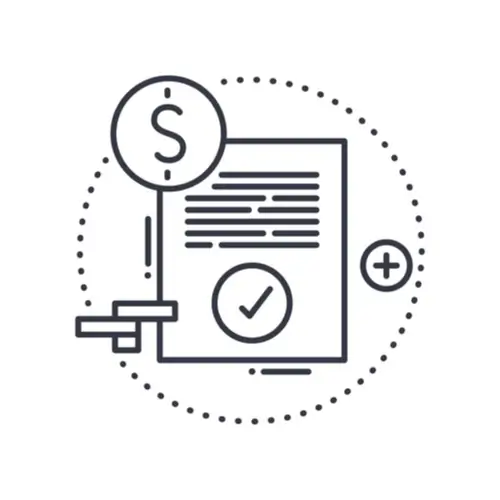
One of the new terms you’ll hear as a first-time home buyer is “escrow.” If you’re unfamiliar with this word, here’s everything you need to know about escrow accounts and how they work.
A Definition
An escrow account, also known as an impounds account, is like a savings account that is held and managed by a neutral third party – typically your mortgage servicer – for the purpose of handling all the costs associated with a mortgage.
What Does It Cover?
While your monthly loan payment will include principal and interest that goes directly to the lender, it will also include a portion for property taxes, homeowners’ insurance, and any flood or mortgage insurance premiums you pay. The third party will take out these extra parts and let them grow in your escrow account and pay the bills for these charges when they come due. It essentially guarantees that your taxes and insurance will be paid as it is automatically done for you.
What Doesn’t It Cover?
An escrow account does not collect money or pay bills for water/sewer or utility bills. It also does not include one-off tax assessments from local governments, supplemental tax bills, or homeowner association dues.
How Do I Get an Escrow Account?
When your offer on a house is accepted, you’ll be required to put down 1%-2% of the purchase price as earnest money. The lender will open a third-party escrow account in your name where that money will sit untouched until your mortgage closes. Those funds can be used towards closing costs and your down payment. Thereafter, a portion of the monthly mortgage payment will be set aside in the account for taxes and insurance. Your escrow account will stay open for the duration of the home loan or unless you decide to cancel it for some reason.
What is an Escrow Analysis?
Each year your mortgage servicer will estimate how much is needed for your property taxes and homeowners’ insurance bills. The exact amounts can vary from year to year, however, based on government policies or market conditions. To make sure you are on track to have enough money in escrow, the mortgage servicer will examine the account for discrepancies. Based on their findings, they may let you know that you have an escrow shortage or overage. An overage is no problem, as the escrow company can simply write you a check or electronically refund the extra funds. If there is a shortage though, you’ll have to come up with more money either in full at once, or in some cases, to spread the total over 12 months along with your regular payment.
Can I Change Homeowners Insurance with My Escrow Account?
Yes. You can shop for a different homeowners insurance policy at any time. You just need to sign up with your new insurance provider canceling your current policy. And be sure to send any refund from the original policy to your escrow company to help fund the new premium. Finding a less expensive homeowners insurance plan can be a great way to reduce or prevent an escrow shortage.
How Can You Track Your Escrow Account Balance?
Many mortgage servicers provide borrowers with access to their escrow account information and balances through online portals. Some may require you to call or email the escrow directly.
An escrow account is an important part of having a home mortgage. It safeguards your money to make sure the essential bills are paid to keep you from losing your house. While the terminology may seem confusing at first, this neutral third-party holding account is simple to understand and utilize.
These materials are not from HUD or FHA and were not approved by HUD or a government agency.

